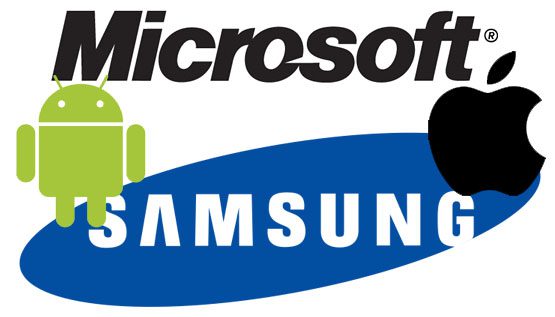The tech giants, along with Yahoo, Facebook, and AOL, call upon the Senate Judiciary Committee to substantially reform the US government’s mass surveillance practices.
The top tech companies are sharpening their blades in their battle with the National Security Agency. While they’ve been doggedly asking for transparency on the agency’s mass surveillance program for months, they’re now calling for reform.
Google, Apple, Microsoft, Yahoo, Facebook, and AOL penned a letter (pdf) to the lead members of the Senate Judiciary Committee on Thursday urging the lawmakers to substantially reform the NSA surveillance practices. The companies also asked for additional oversight and accountability mechanisms for the spying programs.
“Transparency is a critical first step to an informed public debate, but it is clear that more needs to be done,” the letter reads. “We urge the Administration to work with Congress in addressing these critical reforms that would provide much needed transparency and help rebuild the trust of Internet users around the world.”
The NSA is one of the biggest surveillance and eavesdropping agencies in the US and was whistleblower Edward Snowden’s workplace before he decided to leak some of the agency’s top-secret documents to the press in June.
That document leak opened the public’s eyes to the government’s collection of data on US residents through both cellular records and metadata from Internet companies. Since Snowden’s original leak, thousands more documents have surfaced. The NSA and the Obama administration have maintained that the surveillance program was carried out to protect Americans and track down foreign terrorists.
The letter sent by the tech companies “applauds” Sen. Patrick J. Leahy (D-Vt.) and Rep. F. James Sensenbrenner Jr. (R-Wis.) who recently sponsored a bill called the USA Freedom Act. This bill has the goal of “ending eavesdropping, dragnet collection, and online monitoring” by the NSA and other government agencies.
Sensenbrenner is considered one of the architects of the Patriot Act, which the NSA often cites as a legal justification for its surveillance activities. However, Sensenbrenner is adamant that mass government spying wasn’t the intention of the Patriot Act.
“We have to make a balance between security and civil liberties,” Sensenbrenner told theAssociated Press in an interview last week. “And the reason the intelligence community has gotten itself into such trouble is they apparently do not see why civil liberties have got to be protected.”
In their letter, the six tech giants echoed Sensenbrenner’s sentiment.
“As companies whose services are used by hundreds of millions of people around the world, we welcome the debate about how to protect both national security and privacy interests and we applaud the sponsors of the USA Freedom Act for making an important contribution to this discussion,” the letter reads.
Ever since the Snowden leak, these tech companies have been pushing for greater transparency from the US government. They have also been urging the government to allow them to publish detailed information on the number of national security-related government requests for user data they have received.
These companies are looking to reassure their users that the NSA doesn’t have unfettered access to their user data. At present, tech companies are only allowed to publish information on such requests in aggregate; they can’t break down how many requests came from the NSA specifically.
In their letter, the companies again reiterate their request to release more information to the public.
“We also continue to encourage the Administration to increase its transparency efforts and allow us to release more information about the number and types of requests that we receive,” the letter reads, “so that the public debate on these issues can be informed by facts about how these programs operate.”
In other NSA reform news, the Senate Intelligence Committee approved a handful of surveillance reforms on Thursday in an 11-4 vote during a closed meeting, according to Politico. The text of the bill is not yet available, but most likely it would call for limits on government call-tracking and database queries.
(Via The Washington Post.)

